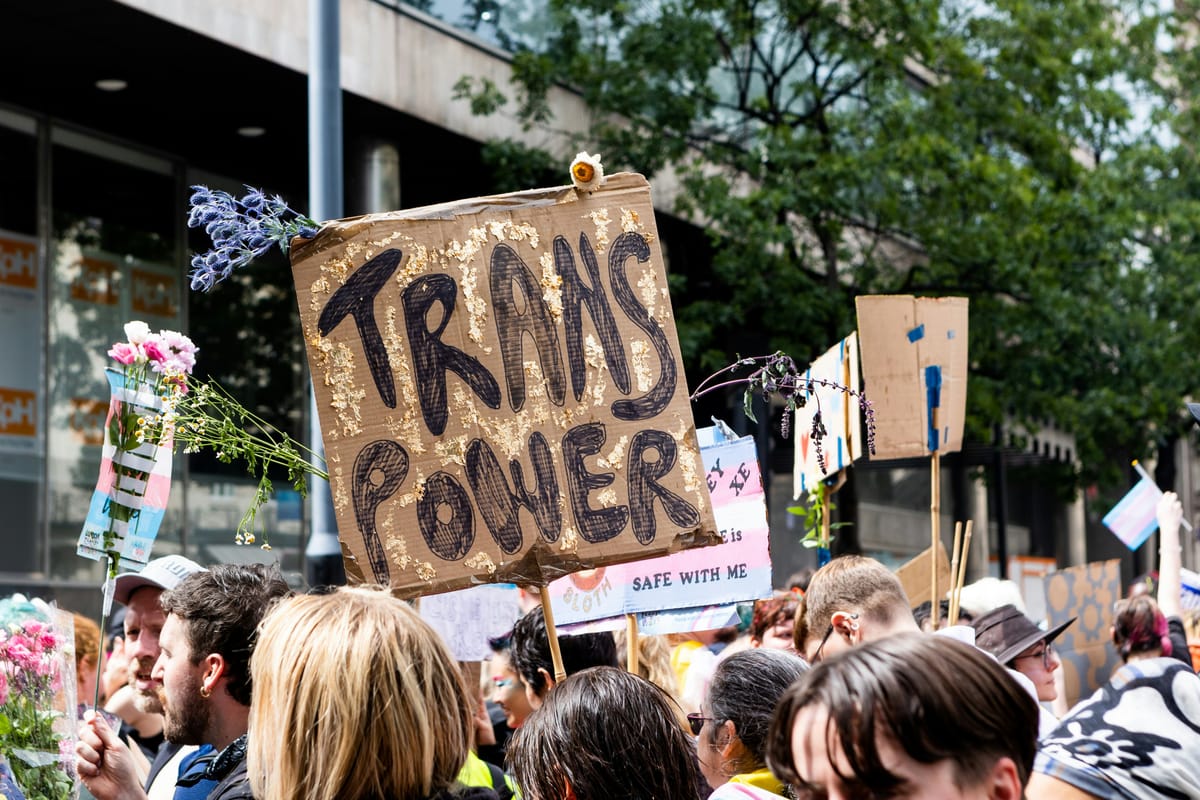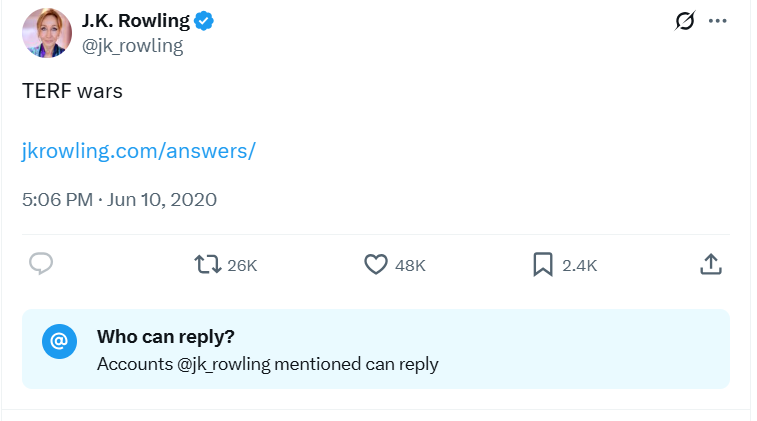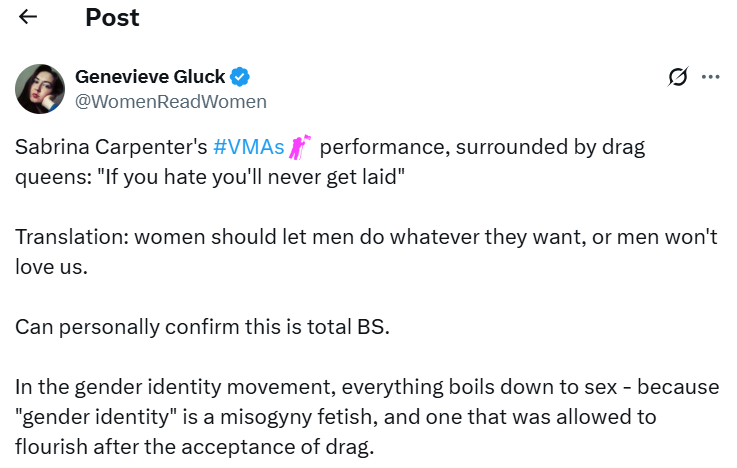Let’s talk about the valley of the TERFS

Recently, Jordan Jensen went on Stavros Halkias’ Podcast Stavvy’s World to promote her new Netflix special Take Me With You alongside some TERF ideology. Amidst referring to women as “cumgoblins” and stating being a woman was not hard but “stupid” and “our fault” she also said, “If you are a feminist then you also have to have issues with trans stuff.”
I do not bring Jordan Jensen up to declare her a transphobe. She is a comedian and clearly exaggerating. There is no real way for me to parse through what she genuinely believes and what she is simply saying as a comedian. But, if every joke has a grain of truth to it, I think the truth that Jordan Jensen was tapping into was the rise in transphobic rhetoric now, propped up under the guise of feminism.
It is not just coincidence that this comes around the same time the UK government ruled the legal definition of a woman to be based on biological sex, or as transgender based hate crimes rose with 52% of all anti-LGBTQ+ incidents being against trans and gender non-conforming people as of 1 May 2025 according to GLAAD.
It is interesting that Jensen denied being referred to as a TERF in this podcast, though. JK Rowling has also denied the accusations of being a TERF before, stating “the idea that women like me, who’ve been empathetic to trans people for decades, feeling kinship because they’re vulnerable in the same way as women - ie, to male violence - ‘hate’ trans people because they think sex is real and has lived consequences- is a nonsense.”

Rowling has since adopted the label of a TERF. She used ‘TERF Wars’ as the title of her transphobic manifesto, referring to the term in conjuncture with “misogynistic slurs” and stating that “the attempt to silence women with the word ‘TERF’ may have pushed more young women towards radical feminism than the movement’s seen in decades.”
In cases where people, like JK Rowling, decry TERF as a misogynistic slur, it is important to remember that TERF is an acronym for Trans Exclusionary Radical Feminism. If someone claims to be a radical feminist and believes that they should exclude trans people from feminism or trans women from womanhood, they are a TERF. It is not a slur to describe someone how they might describe themselves if they were not aware of the negative connotations. It is simply accurate, and if this term is a criticism or attack to these people, then they should reconsider their ideology. Simply put: You should not be a bigot if you are uncomfortable being referred to as a bigot.
However, I think it is important to acknowledge that TERFS are not only transphobic. That is an oversimplification that serves to benefit them, I think. Much more than that, they are misogynists who are transphobic because of their misogyny. They are transphobic because they believe that there are set rules every woman should follow, and trans women do not follow these rules.
However, trans women are not the only kinds of women who do not fall in line, and amongst the many ‘incorrect’ women is pop star Sabrina Carpenter.
Sabrina Carpenter recently performed her new song Tears at the VMAs. During this performance, she danced with drag artists who held up signs like, “In Trans We Trust”, “Protect Trans Rights” and “Dolls Dolls Dolls”.
The performance was divisive and was met with backlash from all sides of the political spectrum. A large portion of this backlash specifically came from feminists who criticised Carpenter for being sexist.
Twitter user Genevieve Gluck goes so far as to say that “gender identity” is a misogyny fetish.

This criticism of Sabrina Carpenter as a misogynist and particularly as male centred is not new, and in fact the same outrage came from the release of her original album cover for Man’s Best Friend, which depicts Carpenter on the floor on all fours as a man pulls her hair.
The main criticism was that Sabrina Carpenter was setting feminism back. That this album cover was projecting the wrong message of ‘what’ a woman is. No matter where you fall on the discourse of this cover, whether you think it is transgressive or regressive, it quickly became personal. It became about the kind of woman Sabrina Carpenter was and the kind of woman she should be.
These are not separate issues to me. Sabrina Carpenter as a pop star presents herself as hyperfeminine, leaning into the blonde bombshell aesthetic, which has been referred to at times as ‘bimbocore’. Similarly, trans women have increasingly been referred and referred to themselves as ‘dolls’, another term which connotes hyper femininity.
These are terms that have been reclaimed, which were previously used against women to mock how ‘fake’ or ‘shallow’ or ‘stupid’ they appear.
I believe that this reclamation makes TERFS uncomfortable, not because they believe that it ‘centres men’, as in fact choosing to live your life in direct opposition to what men accept rather than simply living your life authentically to what you enjoy is still centring men. Instead, I believe it is because of this male-centred framework that TERFS are so intolerant to hyperfeminine and trans women.
They are simply afraid of being perceived as ‘fake’ or ‘shallow’ or ‘stupid’. Of being the wrong kind of woman.
The TERF ideology comes from misogyny, and I do not think it helps anyone to pretend otherwise. I think it endangers trans women as well as all transgressive women, and I think that if we accept there is a ‘right’ kind of woman, we open the doors for more women to be killed because they are the ‘wrong’ kind of woman.





Comments ()